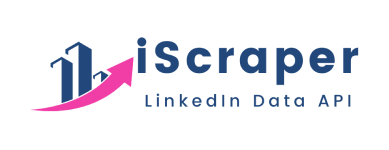Programmatically search profiles, send messages, and find jobs. All with a regular Linkedin user account.
No "official" API access required - just use a valid Linkedin account!
Caution: This library is not officially supported by LinkedIn. Using it might violate LinkedIn's Terms of Service. Use it at your own risk.
Python >= 3.6 required
To install the linkedin_api package, use the following command:
pip install linkedin-apiOr, for bleading edge:
pip install git+https://github.com/tomquirk/linkedin-api.gitSee all methods on the documentation website.
The following snippet demonstrates a few basic linkedin_api use cases:
from linkedin_api import Linkedin
# Authenticate using any Linkedin account credentials
api = Linkedin('[email protected]', '*******')
# GET a profile
profile = api.get_profile('billy-g')
# GET a profiles contact info
contact_info = api.get_profile_contact_info('billy-g')
# GET 1st degree connections of a given profile
connections = api.get_profile_connections('1234asc12304')This is a sponsored section
Extract data and find verified emails in real-time with Prospeo LinkedIn Email Finder API.
Learn more
Submit a LinkedIn profile URL to our API and get:- Profile data extracted in real-time
- Company data of the profile
- Verified work email of the profile
- Exclusive data points (gender, cleaned country code, time zone...)
- One do-it-all request
- Stable API, tested under high load
Try it with 75 profiles. Get your FREE API key now.
Scrape public LinkedIn profile data at scale with Proxycurl APIs.
Learn more
- Scraping Public profiles are battle tested in court in HiQ VS LinkedIn case.
- GDPR, CCPA, SOC2 compliant
- High rate limit - 300 requests/minute
- Fast - APIs respond in ~2s
- Fresh data - 88% of data is scraped real-time, other 12% are not older than 29 days
- High accuracy
- Tons of data points returned per profile
Built for developers, by developers.
End sponsored section
For comprehensive documentation, including available methods and parameters, visit the documentation.
Learn more about how it works.
This library is not endorsed or supported by LinkedIn. It is an unofficial library intended for educational purposes and personal use only. By using this library, you agree to not hold the author or contributors responsible for any consequences resulting from its usage.
We welcome contributions! Learn how to find endpoints.
- Python 3.7
- A valid Linkedin user account (don't use your personal account, if possible)
pipenv(optional)
-
Create a
.envconfig file. An example is provided in.env.example- you include at least all of the settings set there. -
Install dependencies with
pipenv:pipenv install --dev pipenv shell
pipenv run testLinkedin will throw you a curve ball in the form of a Challenge URL. We currently don't handle this, and so you're kinda screwed. We think it could be only IP-based (i.e. logging in from different location). Your best chance at resolution is to log out and log back in on your browser.
Known reasons for Challenge include:
- 2FA
- Rate-limit - "It looks like you’re visiting a very high number of pages on LinkedIn.". Note - n=1 experiment where this page was hit after ~900 contiguous requests in a single session (within the hour) (these included random delays between each request), as well as a bunch of testing, so who knows the actual limit.
Please add more as you come across them.
- Mileage may vary when searching general keywords like "software" using the standard
searchmethod. They've recently added some smarts around search whereby they group results by people, company, jobs etc. if the query is general enough. Try to use an entity-specific search method (i.e. search_people) where possible.
This project attempts to provide a simple Python interface for the Linkedin API.
Do you mean the legit Linkedin API?
NO! To retrieve structured data, the Linkedin Website uses a service they call Voyager. Voyager endpoints give us access to pretty much everything we could want from Linkedin: profiles, companies, connections, messages, etc. - anything that you can see on linkedin.com, we can get from Voyager.
This project aims to provide complete coverage for Voyager.
Voyager endpoints look like this:
https://www.linkedin.com/voyager/api/identity/profileView/tom-quirk
Or, more clearly
___________________________________ _______________________________
| base path | resource |
https://www.linkedin.com/voyager/api /identity/profileView/tom-quirk
They are authenticated with a simple cookie, which we send with every request, along with a bunch of headers.
To get a cookie, we POST a given username and password (of a valid Linkedin user account) to https://www.linkedin.com/uas/authenticate.
We're looking at the Linkedin website and we spot some data we want. What now?
The following describes the most reliable method to find relevant endpoints:
-
view source -
command-f/search the page for some keyword in the data. This will exist inside of a<code>tag. -
Scroll down to the next adjacent element which will be another
<code>tag, probably with anidthat looks something like<code style="display: none" id="datalet-bpr-guid-3900675"> {"request":"/voyager/api/identity/profiles/tom-quirk/profileView","status":200,"body":"bpr-guid-3900675"} </code>
The value of request is the url! 🤘
You can also use the network tab in you browsers developer tools, but you will encounter mixed results.
linkedin.com uses the Rest-li Protocol for querying data. Rest-li is an internal query language/syntax where clients (like linkedin.com) specify what data they want. It's conceptually similar to the GraphQL.
Here's an example of making a request for an organisation's name and groups (the Linkedin groups it manages):
/voyager/api/organization/companies?decoration=(name,groups*~(entityUrn,largeLogo,groupName,memberCount,websiteUrl,url))&q=universalName&universalName=linkedin
The "querying" happens in the decoration parameter, which looks like the following:
(
name,
groups*~(entityUrn,largeLogo,groupName,memberCount,websiteUrl,url)
)
Here, we request an organisation name and a list of groups, where for each group we want largeLogo, groupName, and so on.
Different endpoints use different parameters (and perhaps even different syntaxes) to specify these queries. Notice that the above query had a parameter q whose value was universalName; the query was then specified with the decoration parameter.
In contrast, the /search/cluster endpoint uses q=guided, and specifies its query with the guided parameter, whose value is something like
List(v->PEOPLE)
It could be possible to document (and implement a nice interface for) this query language - as we add more endpoints to this project, I'm sure it will become more clear if such a thing would be possible (and if it's worth it).
- Bump
__version__in__init__.py pipenv run buildpipenv run publish




